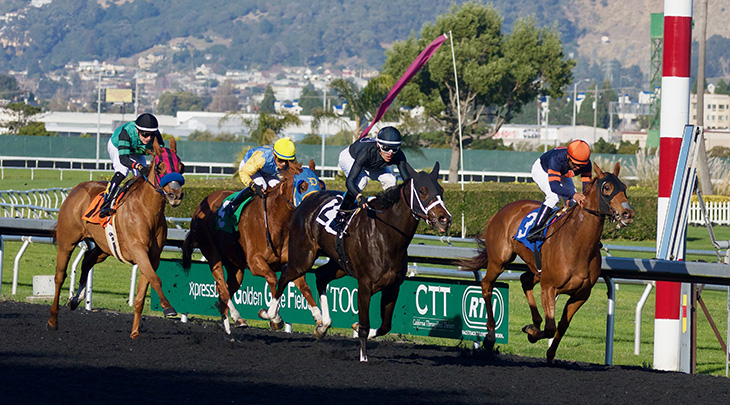
Horse racing is far from a new and revolutionary sport, however, some horrific events in the past few years have forced many people to take a second look at this long-standing tradition.
The horse racing industry grows every day, and we’ve seen massive happy crowds gather on special events like the Kentucky Derby to get their fair share of thrills and excitement. After the last Kentucky Derby winner, Medina Spirit died 6 months after winning the competition and some questions started rising about cruelty in this sport.
So, let’s look at the purpose of the sport and how it impacts the animals.
Is Horse Racing Cruel to the Animals?
Even though horse racing is represented as a sophisticated pastime, it is absolutely right that some horses are discomfortable. In fact, according to PETA, using horses in racing events exposes them to a significant risk of injury, and in some cases, there can be more severe injuries and even death through trauma.
With that said, this is not present in every race and for every racehorse. It is important to understand that horses actually enjoy racing. On top of that, they are well-looked animals, especially those ones that are used for professional racing. In fact, their life might be more enjoyable at a racing stable than in the wild.
How Horses are Treated?
Since horse racing is a big industry that is present all around the world, it is really hard to make a blanket statement on how every single horse race is treated. The industry has it all, from small-town rookies to big stables that participate in professional races.
To get a better idea of how horses are treated, we have to get the other perspective on the story. For example, a horse breeder and trainer Larry Smith defends horse racing saying that racehorses generally live a good life.
He also adds that professional racehorses have special treatments from many people taking care of them to a well-balanced diet, and exercises they enjoy.
However, we also need to take into account the dark side of horse racing, which is also present whether we like it or not. Many racehorse owners are not taking good care of their treasured partners, and sometimes even exploit them just for revenue.
Unfortunately, the horse racing industry turned horses into money-making machines, and often people forget that they are living creatures worthy of compassion or respect.
But this is not only present in horse racing. There are also good and bad sides to other sports as well.
Use of Drugs in Horse Racing
One of the biggest problems with horse racing is the use of drugs in the industry. Since running on track doesn’t come naturally for horses, trainers and veterinarians sometimes use drugs to keep horses on the track.
The most commonly used drug is called Lasix and it is designed to stop pulmonary bleeding in the lungs during intense exercise. In other words, this drug will boost the horse’s performance even when their body is literally shutting down.
There are many talks around this subject in horse racing and the majority of veterinarians involved in horse racing actually support the use of Lasix. Most of them back their claim by adding that Lasix prevents exercise-induced pulmonary hemorrhage and can save their lives.
However, the drug is helpful if the horse is pushed to its limits. So, wouldn’t it be safer and more humane not to push horses to the limit in the first place?
Training
The training process of horses starts when they are barely two years old, even though their bones are still growing and strengthening. With that said, they enter a rigorous training program which often results in injuries. In fact, some horses don’t even make it to their first race.
Of course, not all training methods are cruel for the animals. Some trainers use simpler and more easy-going practices that prioritize the health of horses.
Conclusion
So, is horse racing cruel for the animals? – Well it certainly has an impact on their health. But at the end of the day, it all comes down to how horses are trained, cared for, and raced.
Since horses enjoy racing and most professional horses live the perfect lives, running a race or two per year shouldn’t be a problem for their health.


